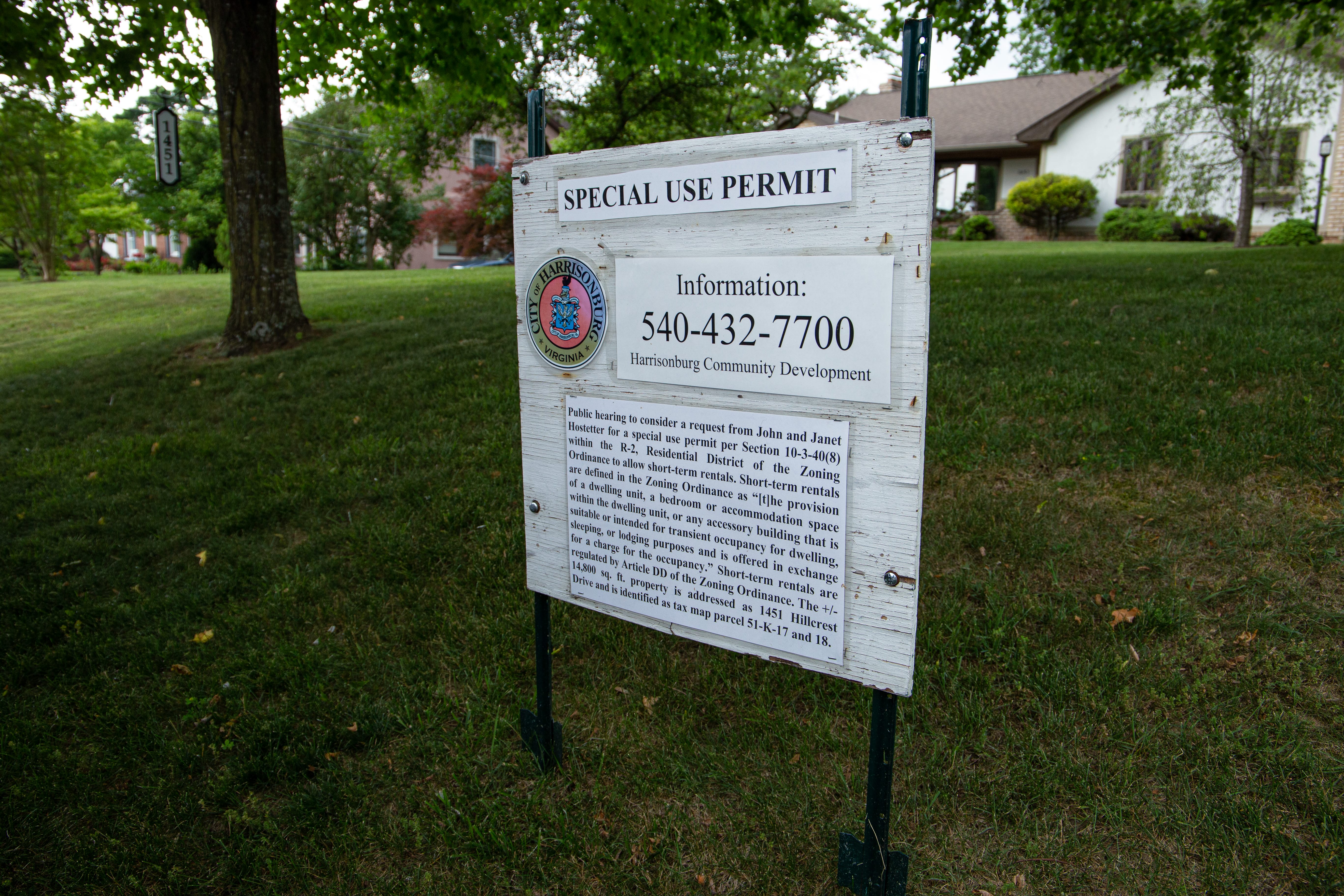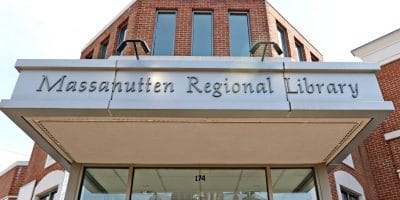 By Harrison Horst, senior contributor
By Harrison Horst, senior contributor
As Harrisonburg continues its experiment with how to regulate Airbnb properties and other short-term rentals, the planning commission — and city council — are now wrestling with how to fairly decide who gets a permit and how to do so efficiently and with the fewest unintended consequences.
For instance, decisions now could have long-lasting effects for whole neighborhoods if short-term rentals become clustered on certain streets. Then there’s the consequences of Airbnb investors competing for properties in an already tight housing market. Plus, the permits are connected to the properties, not the owners, which also has implications in the event houses change hands.
And exploring all of this has taken a lot of time and discussion in recent public meetings.
All of those issues played out when the planning commission met June 12— its second consecutive marathon meeting, clocking in at more than five hours. That has prompted both the planning commission and the city council to consider what this new permitting process has wrought.
“I hope for a temporary headache, but am worried about the far-reaching repercussions of never-ending special use permits,” Commissioner Kathy Whitten told The Citizen in an email. “It does give me cause to pause. The cost for legal action to the city must be considered.”
The planning commission is the first stop for city residents applying for a special use permit that would allow them to operate short-term rentals, most commonly Airbnbs. In May, the planning commission discussed and made recommendations to city council about the first four permit applications in a meeting that stretched past midnight. Last Wednesday, with an agenda containing 11 such applications, the meeting began an hour earlier than the normal 7 p.m. start time and still adjourned just after 11 p.m.
Meanwhile, the City Council officially approved the first three permits for properties on Hillcrest Drive, South Willow Street and Summit Avenue at its meeting last Tuesday in a meeting that lasted from 7 p.m. until about 11 p.m.
“Are we just looking at a new normal?” asked Councilmember Richard Baugh during a 15-minute discussion near the end of the meeting about how to handle the lengthy meetings.
“That’s what we’re trying to gauge,” City Manager Eric Campbell replied. He said it could take until the fall to see if the number of permit applications slow.
Glut of applications
The council in March passed the ordinance to regulate short term rentals by requiring homeowners who want to run Airbnbs to apply for the special use permit. It’s a three-month process that comes with a $475 application fee and requires the blessing of the planning commission and final approval from the city council.
On June 12, the planning commission voted to recommend approval for eight of the 10 short-term rental permit applications it considered. But city staff recommended denying six of the 10 applications, citing increased traffic and changing neighborhood dynamics in their reports. (An 11th application was pulled the day of the meeting.)
While considering those concerns, the commission ultimately made their decisions by more heavily weighing other factors.
“Outside of safety of guests, my number one concern is about removing housing stock from a city where housing is becoming increasingly hard to find,” said commission member Brent Finnegan during the meeting.
As a whole, the commission seemed to agree with Finnegan, choosing to recommend denying two applications. In those cases, commissioners said they felt turning those properties into short term rentals would threaten the local housing stock. In both cases, the property owner did not reside on the property.
Long-term concerns
Many of the staff’s concerns stem from the fact that special use permits are attached to properties —not property owners— and exist in perpetuity with the property. If an applicant chooses to sell their property, the next owner would inherit any special use permit designations, including the short term rental status.
During the meeting, commission members and community members kicked around several potential solutions—all of which had potential problems that staff pointed out. One homeowner even offered to include a clause in his application that would make the permit void if he sold the property. Another idea was to place a 10-year time limit on the permits. But because special use permits are essentially zoning changes, they are not legally subject to expiration dates.
The implications for this loom large beyond minor neighborhood disputes, and include the potential for speculation by developers. As Finnegan said during the June 11 meeting, the financial incentive for short-term rentals is much higher than for long-term rentals, so the market will naturally lean that direction.
Whitten told The Citizen she also fears the effects if too many short term rental applications are approved.
“I am about protecting neighborhoods and have great concern about opening our doors to a revenue stream for homeowners that could stress neighborhoods,” she said. “The neighbors being impacted need to be vigilant and their concerns need to be a priority to the Planning Commission and the City Council.”
In several situations, planning commission members pointed out that one of the conditions attached to each short-term rental application is an option to further review and possibly revoke the permit. This condition is a last resort to help protect neighbors and is invoked if the short-term rental in question would “become a nuisance,” as the language in the permit puts it. But the condition is uncharted territory for the city.
According to Adam Fletcher, director of planning and community development, revoking a special use permit is a process that “has never been tried before.”
‘Domino effect’ on the market?
Another concern is the “domino effect,” the idea that allowing something once could lead to future uncontrollable instances. For instance, if city council approves one short-term rental in a neighborhood, what precedent does that create to approve a second, or third and at what point is it too much? Planning commission members are struggling with where to draw the line — and how to do it.
Nowhere is this more evident than the Park View neighborhood south of Eastern Mennonite University, where four residents have already begun the application process. Two of these residents live on the same street – Summit Avenue – and city staff says another Summit Avenue application is on the docket for July. The Summit Avenue residents who have applied have cited the view from their properties as a draw for potential visitors.
“I do have concern for any neighborhood with a disproportionate number of STRs. I especially have concerns when fellow commissioners are willing to forego the requirement for a homeowner or their agent to be present while the rental is happening,” said Whitten, referring to an amendment the commission made to several applications. “I feel this removes the sense of responsibility that is needed.”
The debate will continue next at the July 9 city council meeting when the 10 short-term rental applications the planning commission took up last week will go before the council.
— Ryan Alessi contributed to this report with quotes from the June 11 city council meeting.
Journalism is changing, and that’s why The Citizen is here. We’re independent. We’re local. We pay our contributors, and the money you give goes directly to the reporting. No overhead. No printing costs. Just facts, stories and context. Thanks for your support.












